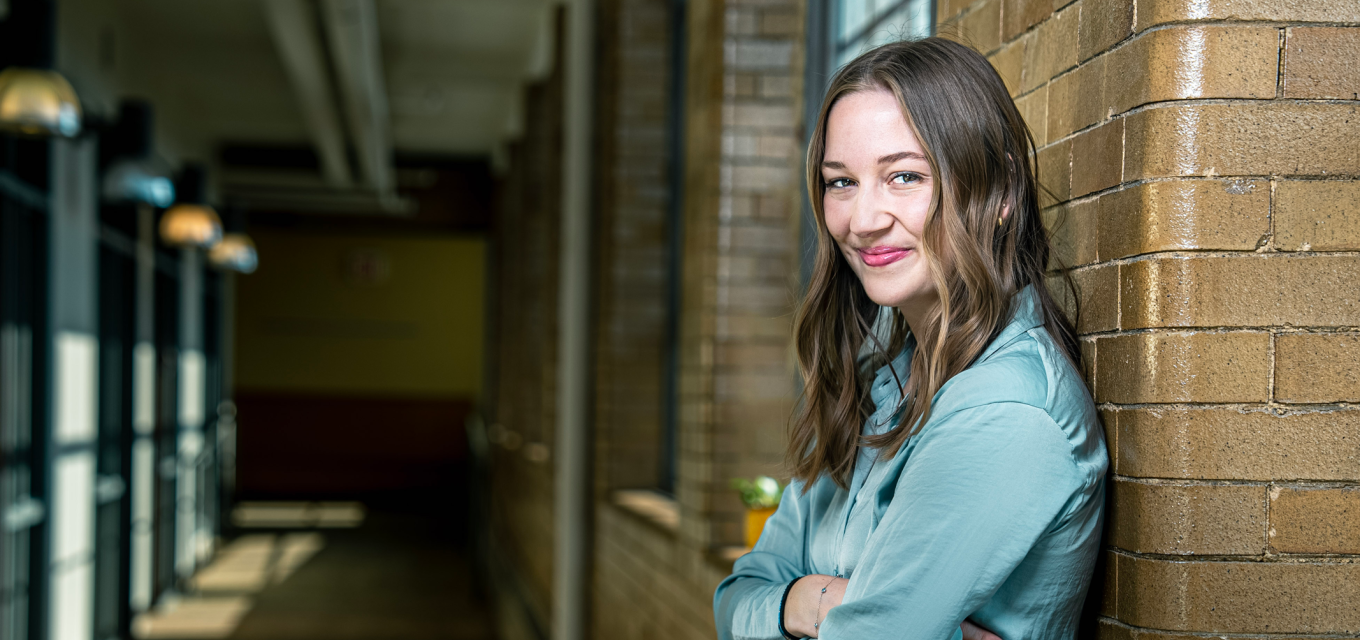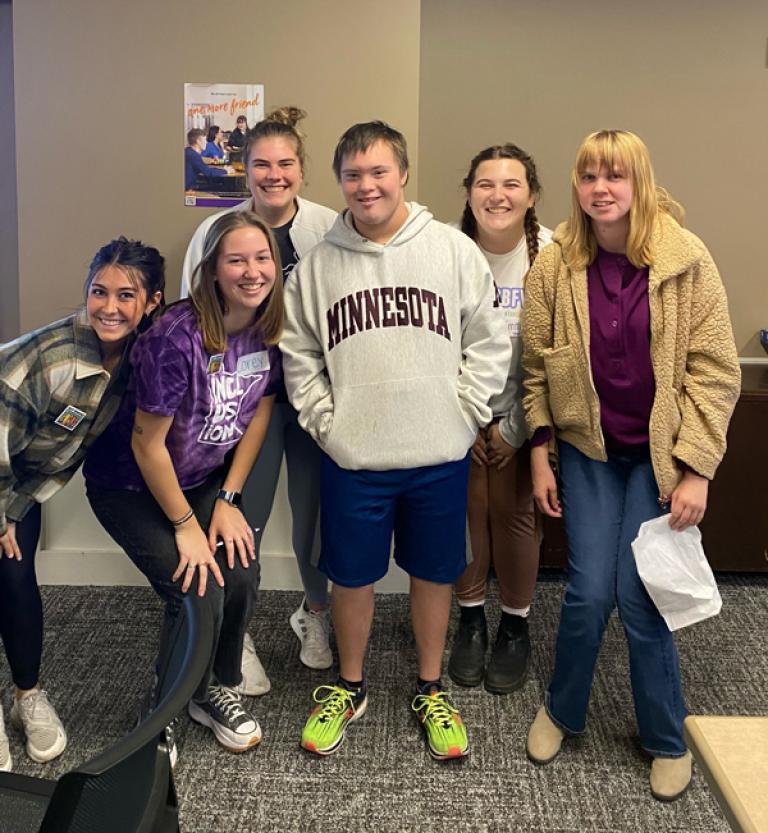2023 Spring / Summer

A champion for inclusion
Ed Psych student brings Best Buddies program to the U.
When I was in kindergarten, my teacher asked me to work with one of my peers with autism, Vince. So, I left class during nap time to work on writing with Vince. He and I played games on dry erase boards and spent quality time together. Ever since working with Vince, I knew I wanted to continue working with people with special needs. I was introduced to Best Buddies in middle school, and Vince and I were buddies in eighth grade. Little did I know this organization would change my life.
Best Buddies is an international organization advocating for individuals with intellectual and developmental disabilities (IDD). It is dedicated to ending the social, physical, and economic isolation for people with IDD. Best Buddies offers four main opportunities: one-to-one friendships, integrated employment, leadership development, and inclusive living. There are one-to-one friendship programs in elementary, middle, and high schools, as well as in colleges. There is also a post-college program called Citizens. Best Buddies offers individuals of all ages the opportunity to make a friend and be involved. Its integrated employment program solidifies occupations for people with IDD and teaches them how to pay taxes and independently support themselves. Leadership development teaches leadership, public speaking, and how to advocate for those with IDD. Lastly, inclusive living offers inclusive housing across the country. These four pillars enable and enhance the unique abilities of individuals with IDD.
My biggest involvement in Best Buddies has been through the one-to-one friendship program. This kind of program consists of three different types of members. First, are buddies. Buddies are individuals with IDD that are paired up with an individual without an IDD. Peer Buddies are individuals without an IDD that are matched with a buddy. Finally, associate members are not in a buddy match but still participate in meetings and events. A school with a Best Buddies program is in charge of planning monthly events for their members to go to.
In high school, I developed a one-to-one friendship with three amazing individuals sophomore, junior, and senior year. These friendships genuinely changed my life and I’m so grateful for them. My buddy and I would attend the monthly events and hang out outside of school. Some of my favorite activities that I would do with my buddies were getting ice cream, baking at one of our houses, going out to eat, and watching movies! The biggest takeaway from being in a one-to-one buddy match is that both the peer buddy and buddy create a meaningful and lasting friendship that exists even beyond the organization.
I was fortunate to be chapter president my junior and senior year of high school. My responsibilities included sharing ideas for monthly events, having a one-to-one buddy, and leading monthly club meetings. I met with the other officers and planned out how our club could be successful throughout the entire school year. As chapter president, I got to attend the Best Buddies Leadership Conference at Indiana University for two years in a row. At this conference, it was an amazing experience to meet with other Best Buddies leaders from across the country and world. There were many opportunities to share ideas from our own chapter, listen to other suggestions, and learn how to be an exceptional leader. This conference taught me to look for the good in everyone and understand that everyone is different in their own ways.

Photo credit: Corey Hughe
Best Buddies at the U
I wanted to continue making these friendships throughout college but was surprised to find that Best Buddies was not a club offered at the University of Minnesota. So, I decided that during my second year of college I wanted to start it. With the help of a friend, we found initial contacts and brought Best Buddies to the University of Minnesota. It has now successfully been a club for three years and has grown more and more each year. Best Buddies at the college level is a little different than high school because you must partner with transition schools in the area in order to find buddies who are interested in joining the program. At the University of Minnesota, we partner with three transition schools: Next Step Transition in North Saint Paul, SAIL transition program in Minnetonka, and Quora Education Center. From these three schools, we currently have 14 buddies that participate in our club. Each of our buddies is matched with a student at the University of Minnesota.
Each month, the officer team that consists of eight individuals plans an event. Some of our events have been a Gopher hockey game, talent show, movie night, holiday song trivia, bingo, and more! A few of the events that we attend are also put on by Best Buddies Minnesota. This means that all Minnesota chapters are invited, and we get to collaborate with other schools. Some of these events include a winter prom and a friendship walk in May. In addition, any chapter president will attend a leadership training conference that usually has been held for a long weekend in the summer, but since the pandemic, it has changed to a day event in the fall.
In Fall of 2022, I learned that I had been nominated as a Champion Candidate for the 2022 Best Buddies Minnesota Champion of the Year campaign which recognizes the community’s most active leaders. I am extremely honored to have been nominated and I took on that opportunity to use my voice to spread the word of Best Buddies and to raise funds for this life-changing mission.
Best Buddies at the University of Minnesota is such a unique club because our members are not all students that attend the University. Our program allows multiple communities to come together and create friendships and opportunities amongst one another. As a college student it can be difficult to create relationships with individuals with disabilities. Best Buddies allows individuals with and without disabilities to connect and form a friendship. I am incredibly grateful for what Best Buddies has done for me and my school community.
Corey Hughes is a fourth-year student in the special education program in the Department of Educational Psychology.
-KEVIN MOE